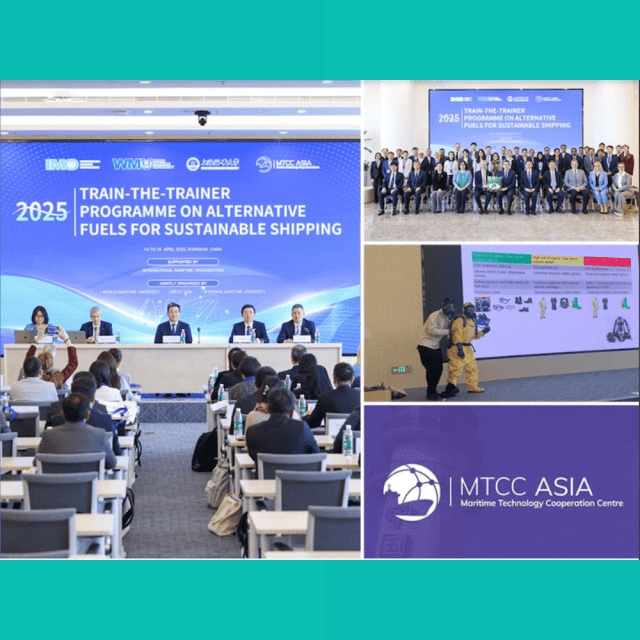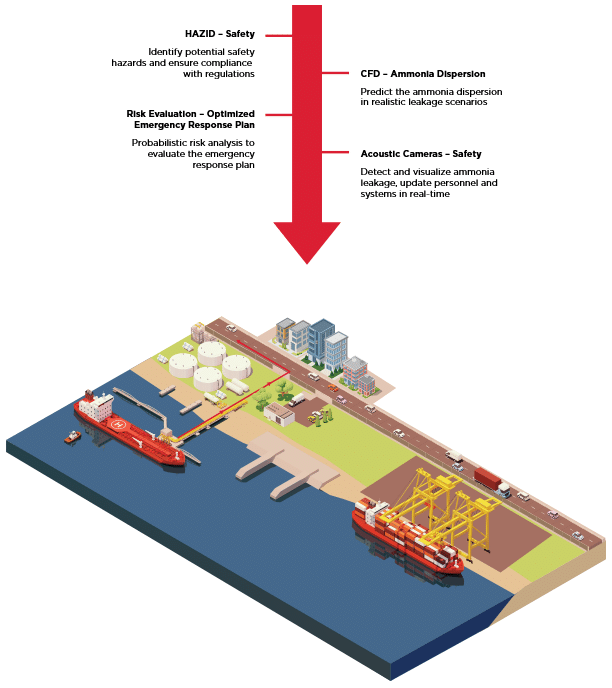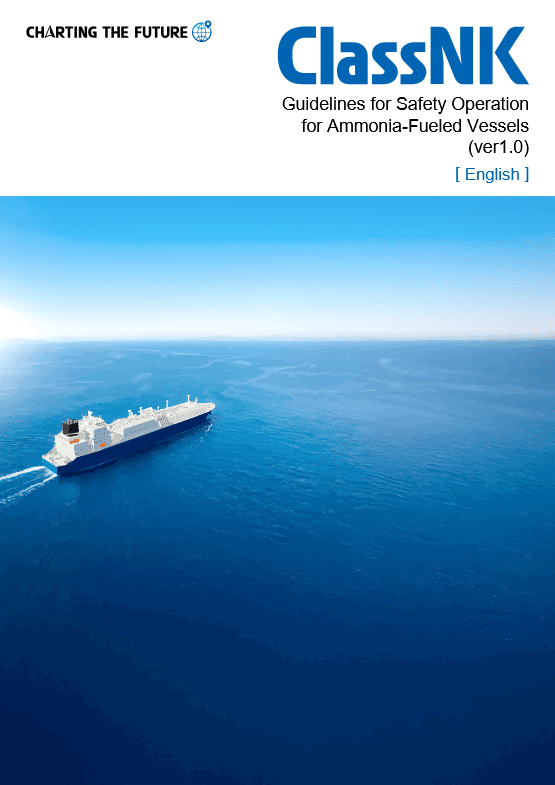Class societies prepare for marine ammonia fuel: safe operations, crew training, and risk management
By Julian Atchison on May 18, 2025
ClassNK release daily operations guidelines
ClassNK’s new Guidelines for Safety Operation for Ammonia-Fueled Vessels cover aspects for the daily operation of ammonia-fueled vessels, including accident response measures, PPE requirements, how to define hazardous areas, and bunker transfer processes. The guidelines also explore considerations for ammonia fuel in relation to the ISM Code (International Safety Management Code) – the IMO’s international standard for the safe management and operation of ships.
Yara, DNV collaborate on Recommended Practice for new vessels
As part of an ongoing collaboration, Yara Clean Ammonia and DNV have produced a formal Recommended Practice (RP) for ammonia-fueled vessels. The framework covers safe ammonia fuel handling, crew training requirements, emergency procedures, and risk management. The RP will also act as a “training roadmap”, with details on how to prepare and familiarize institutions, shipowners, and regulators to build standardized ammonia competence. Yara Clean Ammonia currently manages 15 ammonia carrying vessels and 18 ammonia terminals around the world, and is leading development of the Yara Eyde, the world’s first ammonia-powered container vessel.
Ammonia deserves respect, not fear — safety starts with understanding. Maritime can draw on decades of safe ammonia handling from land-based operations. Transferring that know-how is key to decarbonizing safely. Respect for ammonia as fuel begins with proactive safety.
Laurent Ruhlmann, HESQ VP at Yara Clean Ammonia, in his organisation’s official press release, 9 May 2025
Operators must implement tailored protocols, drills, and scenario-based training. Ammonia readiness must be built into daily operations.
Ksenia Zakariyya, HESQ Manager at Yara Clean Ammonia, in his organisation’s official press release, 9 May 2025
Lloyd’s Register implements seafarer training pilots

Click to learn more. Lloyd’s Register led the first-ever “Train-the-Trainer” course for alternative fuels in Shanghai, April 2025. Source: Lloyd’s Register.
In Shanghai last month, Lloyd’s Register (LR) hosted the first-ever “Train-the-Trainer programme” for alternative fuels. A critical milestone in an ongoing, IMO-backed project that aims to establish training baselines for seafarers onboard alternatively-fueled vessels, the workshop built on a series of recent publications.
LR and the Mærsk Mc-Kinney Møller Center for Zero Carbon Shipping released the detailed report – Ammonia as Fuel – Competencies and Training – in Feb 2025, which details minimum regulatory requirements, basic and advanced competencies for seafarers, and role-specific training for onboard and shore-based personnel. LR and MMMCZCS also collaborated on design recommendations for ammonia-fueled vessels, and an extensive Human Factors safety project.
ABS releases results from ammonia dispersion modeling

Click to learn more. Executive Summary graphic of ABS’ research findings into ammonia safety. Source: the American Bureau of Shipping.
Safety Insights for Ammonia as a Marine Fuel reports the findings of advanced ABS research into ammonia fuel leaks onboard a vessel. In May 2023, the American Bureau of Shipping unveiled its new modeling technique for ammonia fuel leaks, based on computational fluid dynamics simulations. As well as the research results, ABS has utilized software and hardware – including acoustic cameras for detecting and visualizing ammonia leakage – to provide a three-part framework for owners and operators of ammonia-fueled vessels, including real-time monitoring and optimized emergency response.
